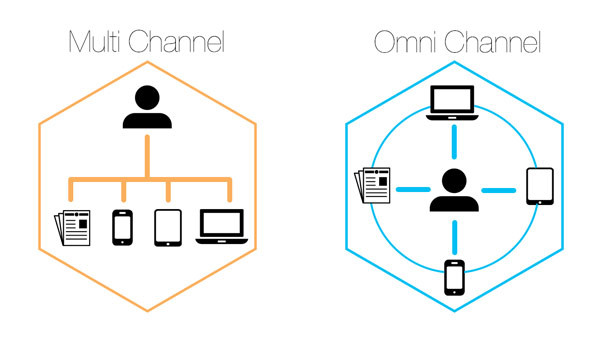Multichannel vs Omnichannel marketing for your business

Multichannel marketing is a way for businesses to open themselves up to new audiences, whether it’s through a blog, a website, on the phone, through email or in person. The more channels your business has, the easier it is for the prospect to find and do business with you. Having multichannels improves the customer experience because every individual has their own preferred method of making purchases. However, multichannel marketing does not do enough to guarantee that people are actually going to do business with your brand. Multichannel marketing only provides access to larger audiences. Omnichannel marketing, the more customer-focussed version of multichannel marketing, can then be used to make sure your business is getting the most out of every channel.
Multichannel marketing creates different ways for customers to reach out to your business, but this strategy may come with the possibility of neglecting certain channels over others. Omnichannel marketing focuses primarily on the customer experience and buyer’s journey by integrating communication channels and bridges the gap between the customer and your business. For example: Customers can browse products online on your company website whilst looking for them in person in your store.
Omnichannel marketing is a form of multichannel marketing and uses all those same channels in a way that best fits the customer’s needs. Customers are now taking advantage of multiple channels simultaneously and in the way that best fits their needs to ultimately decide if the product or service on offer is right for them.
Your business should definitely incorporate a multichannel marketing strategy into its daily operations and maintain a system whereby each channel works together to create a better customer experience by using omnichannel marketing. The difference between multichannel and omnichannel marketing is small, but understanding their functions will help elevate your marketing strategy.









